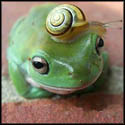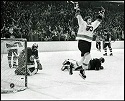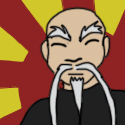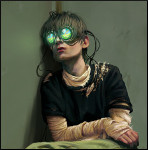|
I've recently started learning guitar and trying to pick up a bit of theory along the way and something that has be a bit confused is what the distinction is between a mode, key and a scale. As far as I understand, if you say a piece of music was written in Ionian mode, X major key or uses X major scale they're all talking about the WWHWWWH pattern. So how do the terms differ and when do you use one term instead of another?
|
|
|
|

|
| # ? Jun 8, 2024 23:22 |
|
My neck pup is warm with a little punch, blues-y
|
|
|
|
Jamz posted:I've recently started learning guitar and trying to pick up a bit of theory along the way and something that has be a bit confused is what the distinction is between a mode, key and a scale. This might be a bit of a crappy simplified explanation, but the key defines the chord that acts as the tonal centre for the piece of music, something the music likes to end on or come back to. If you play some music that's in the key of D minor, and then you hit a D minor chord, it should kinda sum up the 'feel' of that music. The key also defines a bunch of other chords that go with the tonic chord, so it acts like a musical framework. It tells everyone where you're working from, as a point of reference. A scale is a bunch of notes in sequence - there are lots of them, but the most common ones are the major and (natural) minor, and these sequences are used to build major and minor keys. In case you don't know, with C major scale repeating we get: C D E F G A B C D E F G A B C... If you start on C and skip alternate notes you get C E G which is a C major chord, the I (tonic) of the C major scale. Start on D and you get D F A which is D minor (the ii), etc. You can do this with more than three notes, four will get you 7th chords (C7, Dm7, Em7 etc). That's how you get the chords in a key, and that's why the corresponding scale fits so well - they're all using the same notes. You don't have to do this though - for example a typical blues sound is playing the minor scale over a major key progression, like an E minor scale over chords from the key of E major. So think of the scale as the sequence or group of notes you're using. A mode is a variation on the WWHWWWH pattern - it's actually like moving it across step by step and wrapping it around, like this: WWHWWWH - Ionian WHWWWHW - Dorian HWWWHWW - Phrygian WWWHWWH - Lydian WWHWWHW - Mixolydian WHWWHWW - Aeolian HWWHWWW - Locrian So if you notice you're starting at a different point in the sequence each time, the sequence itself (only two half steps separated by two and three whole steps) is the same. Ionian is the major scale - so if you play the C major scale, that's C Ionian. If you take the exact same scale and start on D instead, that will be D Dorian (D E F G A B C D) - same sequence, different starting point. If you start on A, you get A Aeolian (A B C D E F G A) aka A natural minor. If you know about relative minors, this is why A minor is the relative minor of C major - same notes! Another way of looking at it (much more useful, musically) is in terms of altering the scale: D E F# G A B C# D - D Ionian (major) D E F G A B C D - D Dorian So the Dorian mode is the Ionian (or major) with a flat 3rd and 7th. Aeolian is a flat 3rd, 6th and 7th. Lydian is a sharp 4th. Mixolydian is hella popular in rock music - it's the major scale with a flat 7th, which avoids that slightly cheesy half-step 'da da!' back up to the root. You can get some interesting contrasts with your underlying progression (like with the 'blues sound' example), switch into a different mode temporarily to change the feel, stuff like that.
|
|
|
|
baka kaba posted:modes, keys, and scales This is an awesome post, and from all the reading I've done on this sort of thing has cleared it up the most for me.  
|
|
|
|
baka kaba posted:modes, keys and scales Thanks, that really explains a lot. So when someone says a song is written in the key of Dm for example, it just means that the music centers around the D minor chord. It doesn't necessarily mean all the chords are formed from D minor scale, which could change if they used a Dorian or Phrygian mode instead of Aeolian? Jamz fucked around with this message at 06:50 on Aug 3, 2011 |
|
|
|
Fiendish Dr. Wu posted:This is an awesome post, and from all the reading I've done on this sort of thing has cleared it up the most for me. Cool, glad it helped! Jamz posted:Thanks, that really explains a lot. So when someone says a song is written in the key of Dm for example, it just means that the music centers around the D minor chord. It doesn't necessarily mean all the chords are formed from D minor scale, which could change if they used a Dorian or Phrygian mode instead of Aeolian? Yeah, I'm definitely not an expert on this but the key is mainly a starting point. You can definitely use chords from outside of the key - for example in a major key you have these chords: I ii iii IV V vi vii(dim) meaning the root of each chord is the first (I), second (ii), third (iii) or whatever of the scale, and a capital letter means it's major, small letters means minor. So in the key of C major, you'd have C Dm Em F G Am Bdim But aha, check this out - you can 'borrow' chords from the key of C minor too. Here's the C minor chords for reference: Cm Ddim Eb Fm Gm Ab Bb If you're playing in C major, you can borrow the bIII and bVI from the minor key - the third in C major is E, so you want the flat third (Eb) which is major (bIII not biii). Same for the sixth which is A, the bVI is Ab. And if you look at the minor key chords up there, those chords are there. Try throwing them into a major progression, you'll probably recognise the sound (and hear that they fit too). Another thing that's common is to change the v of the minor key (Gm in our C minor key example) and make it a V - make it major basically, so it has a stronger pull to the tonic, or even make it the V7. Technically you're changing a note there, so that chord doesn't really come from the natural minor scale. My experience with modes is really from using them where you'd use a standard major or minor scale, so the key remains the same but the notes you play over them change, and the 'feel' of the mode comes from the contrast. Like I showed you above, D Dorian uses the same notes as C Ionian, the reason it sounds like some D scale and not a C scale comes from the progression you're playing over, and the emphasis you put on the D note as the root of your scale. If you built a key from D Dorian you'd get the same chords as C major. This is where my knowledge definitely runs out even though I have some suspicions, because minor keys sound minor even though it's the same chords as their relative major key, and I've transposed songs into Phyrigian and built chords from the scale and it has a definite sound. Experimenting is a great idea But as far as I'm aware there are only a set number of keys, and you either call them major or minor, so if someone said a song is in D minor I'd assume the chords were based around the D minor scale, and any variations (like the V7 instead of the v) or additions would be expressed in terms of the D minor scale, so can easily work out how to play them. Someone who knows something about music theory can probably tell you more! baka kaba fucked around with this message at 23:43 on Aug 3, 2011 |
|
|
|
Key, scale, and mode are increasingly specific terms. Key is broad. It's pretty much just the "home" note/chord that you start on and resolve to. Key is only normally only qualified by major or minor - and even that's flexible. Scale is a pretty simple idea. It's just a defined set of notes. It can be all 12 notes (the chromatic scale), or as few as 5 notes (pentatonic scales). Literally any set of notes ordered lowest to highest is scale. In the musical tradition most people study, 7 notes comprise a "diatonic" scale. Modes are a subset of scales. When you have an ordered set of notes, like A B C D E F G A, there is a pattern of intervals between each note. I won't reiterate those on the same forums page, but "modes" are that pattern started in different places. Modes and scales overlap substantially. In fact, all modes are scales, and all scales are modes. The standard Major scale is still a "mode", if we forget for a moment that our ears are attenuated to that particular pattern of notes. Modality is a fun concept because it applies to ANY scale. When you get to things like the harmonic and melodic minor scales, you can get all kinds of crazy sounds by playing them modally. As a note of practicality, you should make sure you know how key, scale, and mode apply to vertical combinations. That is, Chords. The scales you'll play for a melody are always related to the chords behind it. Knowing that, you can also deduce key and mode by listening to the chords in a song. Many, many songs are written with modal chord progressions. CalvinDooglas fucked around with this message at 03:28 on Aug 4, 2011 |
|
|
|
I'm a guitar newbie but does this seem decent? http://www.guitarcenter.com/Dean-Vendetta-XM-Electric-Guitar-103933354-i1147571.gc I'm just going to use it for learning / casual playing. Also, would this be fine as a portable amp? http://www.guitarcenter.com/Vox-AC1-RhythmVOX-Battery-Powered-Guitar-Combo-Amp-H68249-i1637003.gc I'm shopping GC since I have store credit there, so any other recommendations around that price range would be helpful.
|
|
|
|
You're not going to be really happy with that Vox, it won't do much. The Vox DA5 is retired, but this is the replacement. It should be a much better idea. http://www.guitarcenter.com/Vox-Mini-3-3W-Battery-Powered-Guitar-Combo-Amp-106087182-i1553056.gc As far as that Dean... I'm not a huge fan of Deans. Tell me about how you see yourself rocking. Do you really want that Strat shape?
|
|
|
|
Warcabbit posted:You're not going to be really happy with that Vox, it won't do much. That amp looks better, thanks. As for the guitar, I don't really have a vision for myself, and I certainly don't mind the shape. I'll go down there in a few days and try them out. As an alternative, I'm looking at this: http://www.guitarcenter.com/Squier-Bullet-Stratocaster-HSS-Electric-Guitar-with-Tremolo-105788053-i1502380.gc Basically whatever 100-150 things they have.
|
|
|
|
If you have a look through here: http://www.rondomusic.com/electricguitar.html See what guitars you like the look of the most, and people might be able to give you some Guitar Center suggestions. Even if you don't care about the looks it's worth trying out a few different shapes yourself, they tend to vary in things like string spacing and one style might feel a lot better than another
|
|
|
|
I got this as my first guitar: http://www.guitarcenter.com/ESP-LTD-M-10-Electric-Guitar-H71350-i1797700.gc?esid=ltd+m-10 I hot rodded it with SD pickups a year later. I bought an American Strat and I still use the M-10 as much as the strat. I really really like it.
|
|
|
|
Jamz posted:Thanks, that really explains a lot. So when someone says a song is written in the key of Dm for example, it just means that the music centers around the D minor chord. It doesn't necessarily mean all the chords are formed from D minor scale, which could change if they used a Dorian or Phrygian mode instead of Aeolian? That's pretty much it, modes can change the "feel" of a song and they are more advanced study material, but as one jazz teacher said to me, they're kind of mental masturbation because you are just changing a note or two in the scale and no one is thinking about that stuff while they're playing. Unless you have a passion for music theory, don't get too caught up in modes, you don't really need them to make music, it's just something cool to understand what's going on after you have played it, or if you're stuck creatively and want to explore something new. But people go crazy with that stuff, and it doesn't really improve their music playing.
|
|
|
|
Exadus posted:
I was talking about this with a friend who plays in an orchestra (asking for tips for live playing), and he just said people do different stuff to relax while playing & still stay focused. So besides the obvious and kind of useless "You just have to get used to it by doing it a lot", you have to find out what works best for you, because some people for instance drink a lot and they play worse. We talked about how some people do Yoga and meditation exercises before playing, others just drink a lot (coffee or alcohol), and some tape their performances, which gives them a bit of "red light fever" and can condition them for playing live. A guy apparently did hypnosis. We concluded that managing your mental state is the only thing you can control, it's just a gig, it's not like you're doing heart surgery or whatever. Things go wrong, it's all right, so just go for it. If you make a mistake, you have to ignore it and keep playing, but some people can't do that, and apparently there's exercises for learning how to "move on" in a live performance, but he didn't go into details. edit: (All this is obviously AFTER you've managed to practice as much as you can and can play, all the confidence in the world won't matter if you don't know your material) Mex fucked around with this message at 19:49 on Aug 6, 2011 |
|
|
|
Apologies if this has been asked recently, but as a relatively new guitar player trying to learn to play by ear, what is a good first song to work on? This will be pretty much my first foray into non-tabbed playing, so something simple would be nice. Also, is there a process for playing by ear people found most effective? I was thinking of using a tabbing program and just tabbing it out one note/chord at a time, but if there's a better way then I'm listening.
|
|
|
|
Tarnien posted:Apologies if this has been asked recently, but as a relatively new guitar player trying to learn to play by ear, what is a good first song to work on? This will be pretty much my first foray into non-tabbed playing, so something simple would be nice. Honestly the songs in the OP are some really good recommendations. As far as playing by ear and tabbing out songs, when you start playing more you'll probably surprise yourself how quickly you can almost guess what the next note or pattern will be.
|
|
|
|
Tarnien posted:Apologies if this has been asked recently, but as a relatively new guitar player trying to learn to play by ear, what is a good first song to work on? This will be pretty much my first foray into non-tabbed playing, so something simple would be nice. Well, the usual answer is "A song you REALLY like", but personally I've ended up hating some songs after trying to figure them out for so long. I started with some hard ones tho, I honestly recommend going for something easy. My personal favorite is Walk Don't Run by the Ventures. Slow it down a bit and learn that awesome, yet easy to play solo. http://www.youtube.com/watch?v=g-evJ0J08Jw&feature=related http://www.youtube.com/watch?v=hIuIIqbyEIU
|
|
|
|
There's also "Music notebooks" with pre-drawn music staffs you can keep with you to write in. I find it's easier to keep next to you while playing than trying to awkwardly hold a guitar and use a computer. Then you can sit down later at the keyboard and use your tab program or whatever with notebook in hand. Another similar option is to just print some of these http://www.blanksheetmusic.net/ out.
|
|
|
|
Question about hardware: I recently picked up an Ovation guitar that I love to death, but I play Preston Reed/Michael Hedges stuff now where I beat the body of the guitar. The pickups in the Ovation are really only good to pick up the strings, not the acoustics within the body itself. I currently combat this with a well-aimed condenser mic, but how trivial is it to have a luthier install a second set of pickups for the preamp to capture the percussive acoustics of the guitar?
|
|
|
|
I don't know what kind of pickup the Ovation comes with, but a decent piezo pickup is pretty easy to install, and shouldn't be too expensive. The kind that goes under the saddle may require some modifications, but if your main goal is to capture percussive sounds, you might be better off with the kind that attaches to the top of the guitar (which should be easier to install as well).
|
|
|
|
Looking into getting an electric guitar at the moment. Do I need to buy a dedicated amp for it, or will a home cinema amp do the job, particularly as I don't have a great deal of space.
|
|
|
|
Pleasure to chill posted:I don't know what kind of pickup the Ovation comes with, but a decent piezo pickup is pretty easy to install, and shouldn't be too expensive. The kind that goes under the saddle may require some modifications, but if your main goal is to capture percussive sounds, you might be better off with the kind that attaches to the top of the guitar (which should be easier to install as well). Thanks for the advice. I don't have any experience installing them myself, but I'm willing to learn. Would you have any recommendations for a decent piezo at an affordable price, or a resource to assist with the installation? (Or should I just give it to a luthier?) Hemp Knight posted:Looking into getting an electric guitar at the moment. Do I need to buy a dedicated amp for it, or will a home cinema amp do the job, particularly as I don't have a great deal of space. It's best that you get a dedicated amp, as they are manufactured to handle the frequencies and intricacies of instruments as opposed to a home theater. Small combo amps are pretty cheap; However, if you'd rather use a home cinema setup, you technically can, it just depends on the inputs. I use my computer speakers sometimes, by running the 3.5mm jack through a Vox Amplug (which acts as a preamp that allows you to run a 3.5mm headphone jack into your quarter inch guitar jack). Squirrel Burger fucked around with this message at 10:19 on Aug 10, 2011 |
|
|
|
Squirrel Burger posted:Thanks for the advice. I don't have any experience installing them myself, but I'm willing to learn. Would you have any recommendations for a decent piezo at an affordable price, or a resource to assist with the installation? (Or should I just give it to a luthier?) They should come with installation instructions, and the ones that attach to the outside of the body should be very easy to install yourself.
|
|
|
|
Hemp Knight posted:Looking into getting an electric guitar at the moment. Do I need to buy a dedicated amp for it, or will a home cinema amp do the job, particularly as I don't have a great deal of space. As far as I know you could blow the speakers if you're not careful, and maybe damage the amp electronics if your impedances aren't matched properly. Not that it matters too much, as it'll sound like raw balls anyway. Guitar amps introduce a 'character' to the raw guitar signal that makes it sound like what you know as an electric guitar, piping that straight through to an amp which is designed to not colour the sound gives you a really rubbish tone. If only space is an issue you could buy something like a POD that does amp modelling, and pipe the headphone or whatever output to your amp. There are a few small amps like the Roland Microcubes which are actually pretty loud and decent-sounding too, great for practice (and these have audio outputs as well)
|
|
|
|
I'm not sure if this is the right thread, but I couldn't find an all purpose gear repair thread. I've got a 2003 Les Paul Studio that I pretty much let sit in its case while I was in college and now I'm looking to bring it back up to playing condition. It's missing a tuning peg and somewhere along the way the pickup selector got knocked out of whack and is upside down. Other than that the finger board is pretty gnarly and overall it looks like a guitar that has been neglected. What's the best way to go about getting it fixed up? Is Guitar Center generally reliable for these sorts of thigns? Do they have some sort of all-inclusive tune up service? I'd like to get the intonation set up as well. I've been playing guitar for about ten years now, but my knowledge about guitar maintenance is laughable, so any help is appreciated. Any specific things I should ask for?
|
|
|
|
Honestly, Guitar Center is the last place I would go to have a guitar set up or fixed or anything. Are there any local luthiers you know of?
|
|
|
|
If you take it to a chain store they'll ship it off to a luthier anyway. Ask around and see who people are using locally.
|
|
|
|
Pocket Billiards posted:If you take it to a chain store they'll ship it off to a luthier anyway. Ask around and see who people are using locally. Sometimes they have in-store guys, and I'm way too attached to my gear to trust a chain tech.
|
|
|
|
I have kind of a technique question. I've been learning some riffs with bends in them (like the solo in Dancing in the Moonlight by Thin Lizzy). When bending the G or B string up, for instance, my nail will catch on the next lower string (D for G bends or G for B bends, etc) and my nail isn't abnormally long or anything. How do I stop this from happening? I'm getting some string noise from the nail vibrating those strings. I play a tele if that makes a difference
|
|
|
|
lazerwolf posted:I have kind of a technique question. I've been learning some riffs with bends in them (like the solo in Dancing in the Moonlight by Thin Lizzy). When bending the G or B string up, for instance, my nail will catch on the next lower string (D for G bends or G for B bends, etc) and my nail isn't abnormally long or anything. How do I stop this from happening? I'm getting some string noise from the nail vibrating those strings. I play a tele if that makes a difference What part of your fingertip are you using to fret?
|
|
|
|
lazerwolf posted:I have kind of a technique question. I've been learning some riffs with bends in them (like the solo in Dancing in the Moonlight by Thin Lizzy). When bending the G or B string up, for instance, my nail will catch on the next lower string (D for G bends or G for B bends, etc) and my nail isn't abnormally long or anything. How do I stop this from happening? I'm getting some string noise from the nail vibrating those strings. I play a tele if that makes a difference It sounds like you're pressing the strings with the pad on your finger instead of your fingertip?
|
|
|
|
Alright, so I'm looking at pickups, budgeting myself at around $80-$100. I've never installed electronics in a guitar, so I might hand it off to a luthier, I'm just trying to find a decent pickup I can put in a bowlback acoustic Ovation (that means no traditional soundhole - I need this one to detect the slaps and hits on the body of the guitar). Would I be able to have a luthier wire this into the existing OP-4BT preamp? Also, can anyone suggest a good body-mounted piezo?
|
|
|
|
Kaboobi posted:It sounds like you're pressing the strings with the pad on your finger instead of your fingertip? Yeah that's probably the case now that you mention it. I guess its a habit I picked up from playing bass primarily
|
|
|
|
lazerwolf posted:Yeah that's probably the case now that you mention it. I guess its a habit I picked up from playing bass primarily I usually mute with my picking hand (it covers the strings below the one I'm playing) or just use the index finger of my fretting hand to damp the string I'm about to hit
|
|
|
|
so, what battery goes in a telecoustic?
|
|
|
|
dolphins are gay posted:so, what battery goes in a telecoustic? All acoustic-electrics I've seen use 9volts.
|
|
|
|
Dirp posted:All acoustic-electrics I've seen use 9volts. False. I have a Taylor 614 that uses AA's and it's terrible.
|
|
|
|
HollisBrown posted:
Why you gotta be a dick?
|
|
|
|
It was more of a jab at Taylor for making a goddamn guitar with AA's. It came from the factory with a post-it not wrapped around the batteries to keep them from sliding around. Dicks.
|
|
|
|

|
| # ? Jun 8, 2024 23:22 |
|
I was recently having some problems with discomfort in my fretting hand, especially when practicing fast chromatic patterns (like 345434543... etc on a given fret). Doing these hand stretches before practicing seems to have helped a lot, and although they may be overkill, I wanted to link them to the thread! http://www.youtube.com/watch?v=TSrfB7JIzxY I hope this helps anyone else who is getting some discomfort or doesn't stretch their hands at all.
|
|
|

























